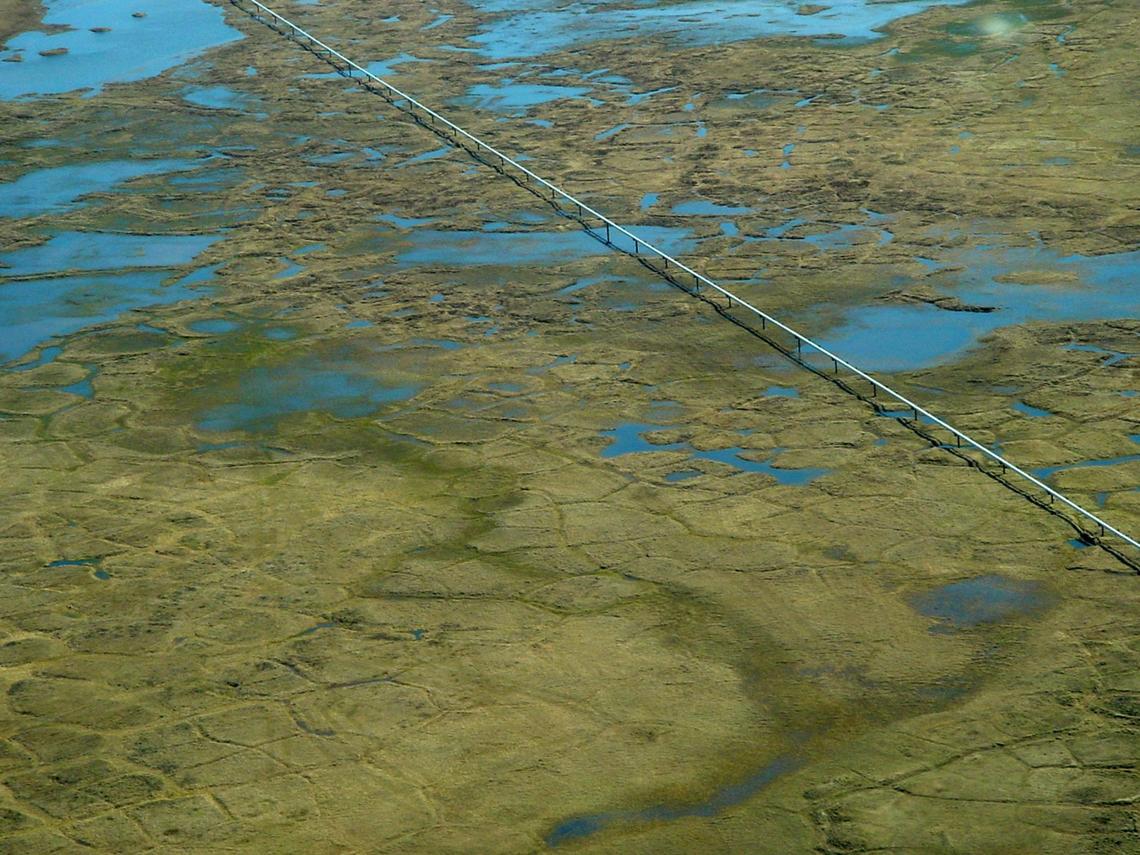The big banks are right to be cautious of Arctic drilling
And the Comptroller of the Currency is wrong to propose rules equating that caution with discrimination.

Late last month, the Office of the Comptroller of the Currency, a little-known agency in the Treasury Department, issued a new proposed rule that would codify non-discrimination provisions in the Dodd–Frank Act.
The purpose of this rule seems benign: to ensure that large financial institutions do not arbitrarily discriminate against certain sectors of the economy because they engage in politically fraught activities, such as abortion clinics and gun manufacturing. (You can read the proposed rule here.)
Senator Dan Sullivan issued a video extolling the virtues of the proposed rule, declaring it “…good news for Alaska.” But Sullivan is wrong. It is good for his patrons in the carbon-production industry, but it is not good for Alaska.
As a (now retired) economic development practitioner, I always look for leverage to support Alaska’s rural villages and their aspirations. Perhaps if the rule could stimulate project capital in those villages, it might be useful. But the rule applies to banks with capitalizations in excess of $100 billion, so clearly this rule is directed at the oil industry (as well as contractors such as Arctic Slope Regional Corporation).
[Trump administration seeks last-minute rule blocking banks’ policies against financing Arctic oil]
Alaska’s entire congressional delegation is in the habit of conflating good news for the oil and gas industry as good news for Alaska, just as they conflate the interests of Alaska’s villages and tribes with those of the Alaska Native Claims Settlement Act corporations. There are overlaps in the Venn diagram, for sure, but those interests are not identical.
The OCC makes a curious argument. On the one hand the comptroller’s office argues that matters of politics, culture or society lay outside the purview of the banker; those matters should be excluded from the underwriting and analyses of the banker. But on the other hand, the office argues that the more complex the task of due diligence by the bank, the more innovative their underwriting and analytics will have to be. If “climate change” has investors spooked, then let analytics make the case and not superstition or ideology.
Here is the problem for the bankers, which the OCC failed to take into account in its rulemaking: The banks cannot ignore the impacts of climate change when it comes to Arctic projects; they cannot use conventional analytics for the “unknown-unknowns.” The withdrawal of the United States from the Paris climate accords isn’t simply objectionable to a group of “woke” bankers. The Paris Agreement includes the rules of transaction that will impact the marketplace for the next century. The Kyoto Protocol (incorporated in the Paris accord) is notable for the creation of a set of evolving mechanisms for putting the development cost of carbon “on the books” for the world — and the marketplace — to see. Carbon offsets and carbon taxes are frequently advocated by conservative economists, such as Steve Cicala, a University of Chicago economist who notes that such taxes are consistent with the late Milton Friedman’s support of “negative externalities” to modify bad market behavior.
Putting the “cost of carbon” on the books is not, however, just the result of some conservative economic ghost inspiring the staff at the United Nations Framework Convention on Climate Change; it is pragmatic.
Western Alaska alone is the site of several primarily Indigenous villages facing dislocation due to climate related impacts. Over the last 30 years, hundreds of millions of dollars have been spent on erosion control. Relocation is now inevitable at the future cost of billions of dollars. In addition to the physical costs to the community, there are stark land-use impacts from climate change that dramatically affect subsistence hunting and fishing; for example, diminishing sea ice means hunters lose access to critical marine mammal species, while permafrost freezers used to preserve meat are thawing.
Who is going to pay the cost of relocating Western Alaska villages? The Native Village of Kivalina in Northwest Alaska believes that the energy companies should pay. In 2008, it filed a lawsuit against numerous energy corporations claiming a criminal tort arises from their actions that has harmed the village. While the lawsuit ended with the court deciding that the question was “political” rather than judicial and therefore should be settled in legislatures rather than courts, Kivalina v. Exxon pointed the way to the legal future for climate change and its associated liabilities.
Since that court case was dismissed, the legal ecosystem has changed markedly, along with the technology. Germany has advanced nanotechnological markers to trace source pollutions. Canada, France and England are codifying the rules and remedies that were absent in the days of Kivalina’s lawsuit.
The global community of climate science and law know that it is just a matter of time before climate forensics makes the tort theory of Kivalina viable.
So, the banks are correct to avoid an area that carries so many unknowns. Until the rules for U.S. federal lands are settled and carbon protocols are in place, the banks are wise to avoid the terra incognita of federal Arctic oil and gas development.
Elstun Lauesen is a retired economic development specialist who has worked in rural Alaska and Indian Country. He is an enrolled member of the Asa’carsarmiut Tribe.
The views expressed here are the writer’s and are not necessarily endorsed by ArcticToday, which welcomes a broad range of viewpoints. To submit a piece for consideration, email commentary (at) arctictoday.com.